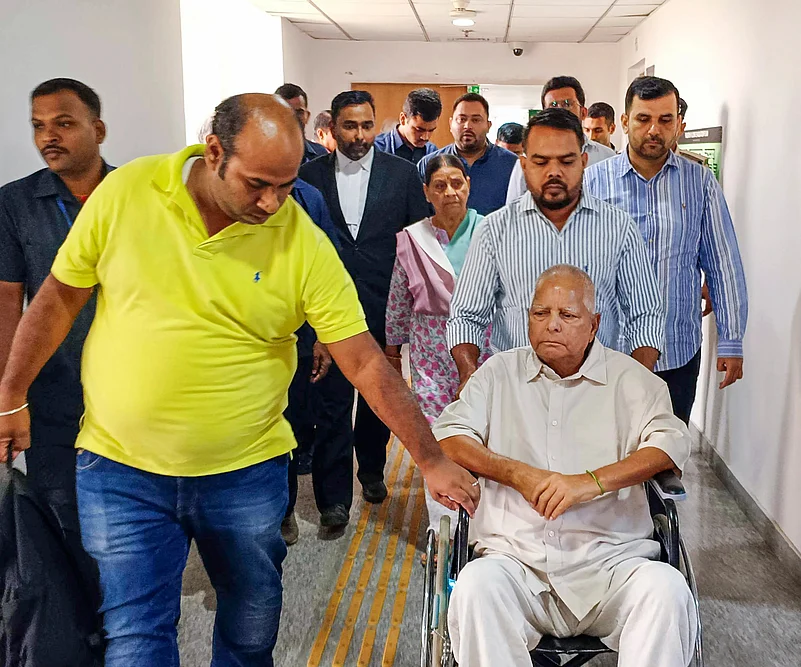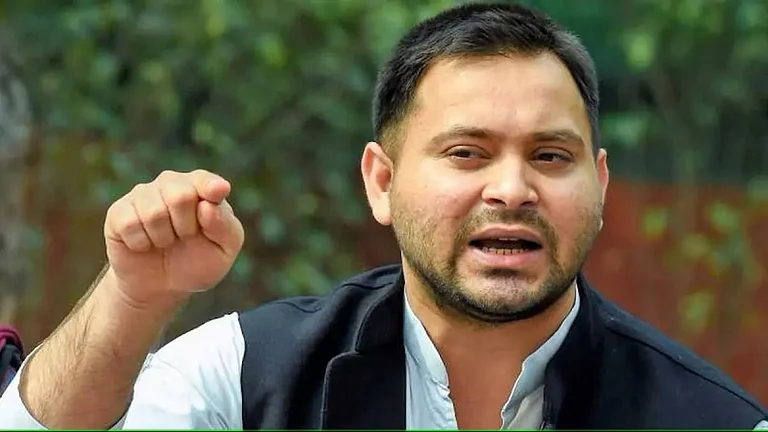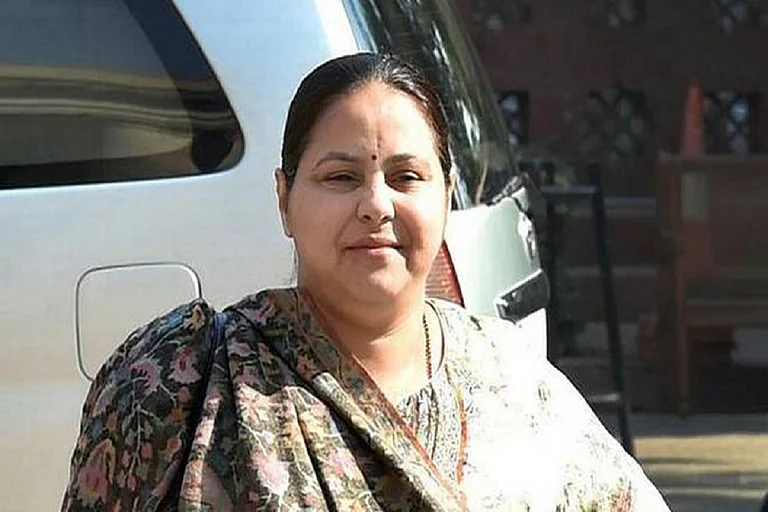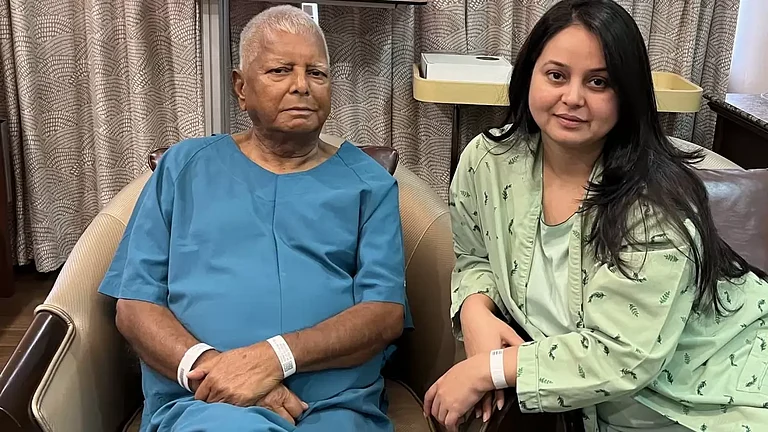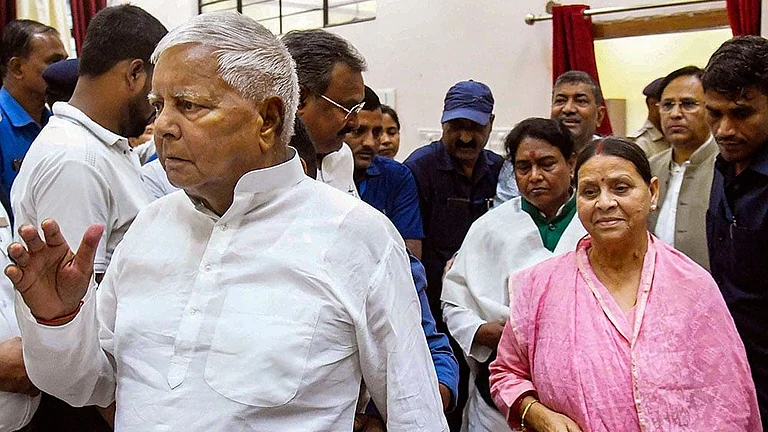
Summary of this article
The IRCTC hotel scam alleges Lalu Yadav’s family traded favorable hotel leases for prime Patna land.
CBI charges include cheating, criminal conspiracy, and corruption, framed by Delhi court in October 2025.
Political timing fuels controversy as RJD claims the case targets them before Bihar Assembly elections.
The IRCTC hotel scam is a high-profile legal case in India involving former Union Railway Minister Lalu Prasad Yadav, his wife Rabri Devi, and their son Tejashwi Yadav. The case centers around alleged irregularities in the leasing of two hotels owned by the Indian Railway Catering and Tourism Corporation (IRCTC) during Lalu Prasad’s tenure as Railway Minister from 2004 to 2009.
According to the Central Bureau of Investigation (CBI), these hotels, located in Ranchi and Puri, were leased to Sujata Hotels under terms that were allegedly manipulated to benefit the private company. In exchange, the Yadav family is accused of receiving prime land in Patna at below-market rates. The CBI alleges that these transactions were part of a quid pro quo arrangement and constitute criminal conspiracy, cheating, and corruption.
How did the IRCTC hotel scam happened?
The case began to unfold publicly in 2017 when the CBI registered a First Information Report (FIR) after preliminary inquiries suggested irregularities in the hotel leasing process. During that period, the agency conducted multiple raids at locations associated with the accused, including residences linked to the Yadav family and offices of Sujata Hotels.
The investigation focused on the allocation of IRCTC properties, the financial transactions involved, and the subsequent transfer of land in Patna. Documents recovered during the raids were used to substantiate allegations of collusion and misuse of official power. Over the years, the CBI compiled evidence pointing to the involvement of the Yadav family and other business associates in the transaction.
What legal charges have been filed?
The formal charges in the IRCTC hotel scam were framed by a Delhi court today October 13, 2025. After reviewing the evidence presented by the CBI, the court found sufficient prima facie evidence to proceed with a trial. The accused, including Lalu Prasad, Rabri Devi, and Tejashwi Yadav, face charges under Sections 420 and 120B of the Indian Penal Code, which pertain to cheating and criminal conspiracy, as well as provisions under the Prevention of Corruption Act.
The CBI alleges that the lease agreements were structured in a manner that unduly benefited Sujata Hotels and that the Yadav family used their positions to acquire valuable property unlawfully. All accused have pleaded not guilty and have indicated their intention to contest the charges in court.
Who are the other key figures in the case?
Alongside the Yadav family, the CBI has named several other individuals in the case. These include Vijay and Vinay Kochhar, directors of Sujata Hotels and owners of the Chanakya Hotel, who were allegedly instrumental in securing the favorable leases. Sarla Gupta, wife of former Union Minister Prem Chand Gupta, is also named for her role in facilitating land transfers connected to the alleged quid pro quo.
Over the course of the investigation, the CBI has sought to trace the financial and property transactions that link these individuals to the Yadav family and to identify the extent of collusion in the allotment and acquisition processes.
IRCTC Scam Verdict And Updates
After the FIR in 2017, the investigation proceeded slowly, with multiple rounds of document collection, witness interviews, and legal scrutiny. The CBI repeatedly faced challenges in obtaining key documents and testimony, as many of the transactions were structured through multiple entities and layers of ownership. Between 2018 and 2020, the agency filed supplementary charge sheets and updated the court with additional evidence, including land records, bank statements, and correspondence.
In 2021, the Delhi court initially considered whether there was sufficient evidence to proceed with framing charges, and in 2022, further hearings focused on procedural objections raised by the defense.
By 2023, the court had heard arguments regarding the admissibility of financial records and land valuation documents, which were central to establishing whether the Yadav family benefited improperly from the transactions. Finally, in October 2025, the court framed charges, setting the stage for a formal trial.
The timing of the charges has added a political dimension to the case, coming weeks before the 2025 Bihar Assembly elections. Tejashwi Yadav, who leads the opposition in Bihar, has publicly dismissed the allegations as politically motivated, suggesting that they were timed to coincide with the election cycle to damage the Rashtriya Janata Dal’s (RJD) electoral prospects.


